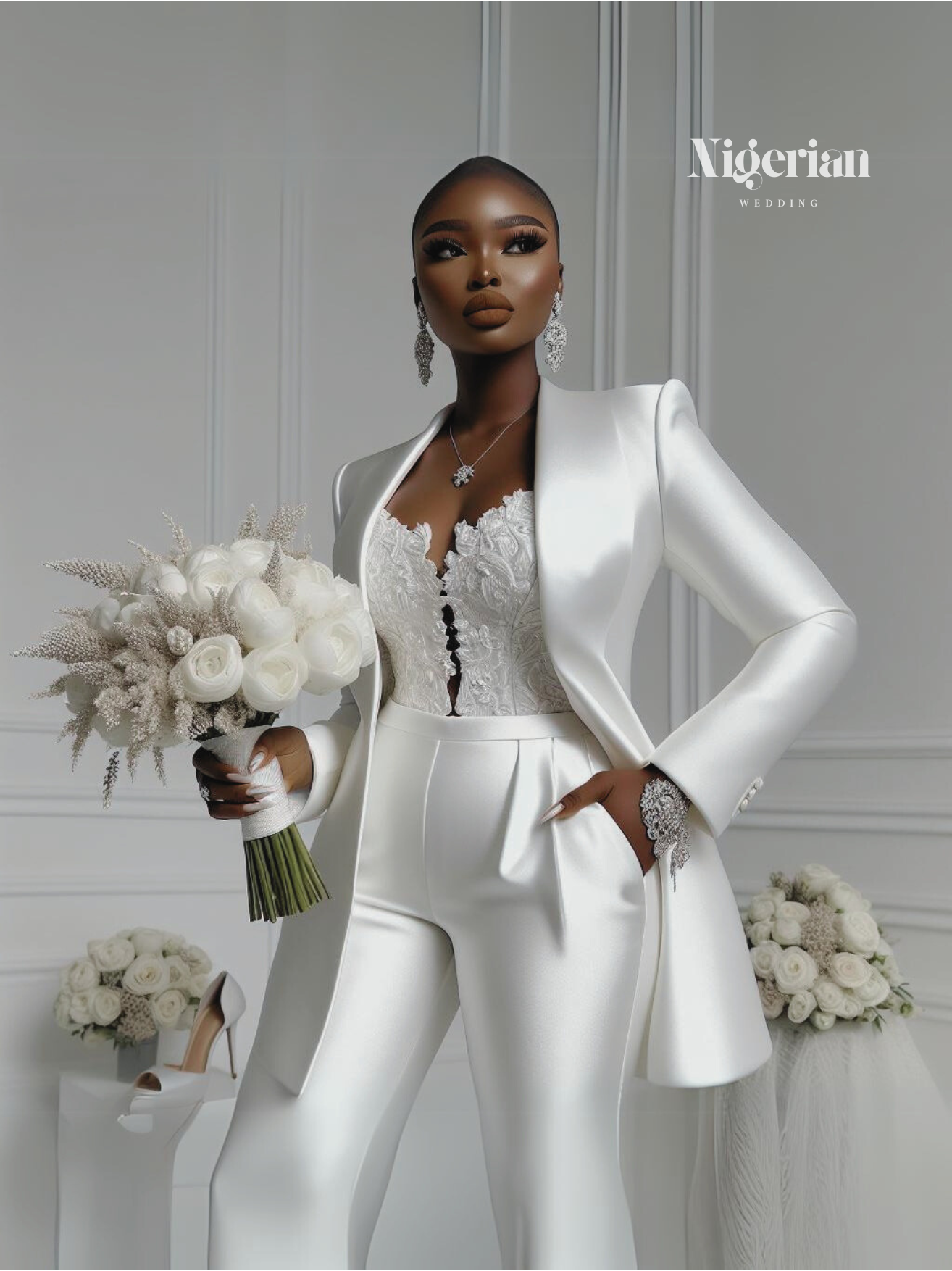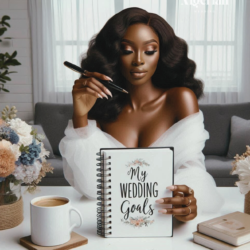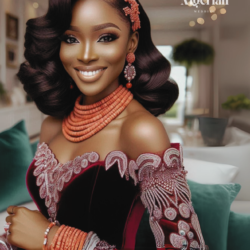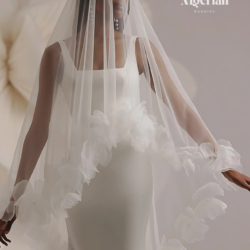How to Start Planning a Nigerian Wedding in the UK: A Complete Guide. Planning a Nigerian wedding in the UK requires careful coordination of traditional elements, modern preferences, and logistics in a foreign country. Nigerian weddings are known for their cultural richness, elaborate ceremonies, and large gatherings, and incorporating these aspects into a UK setting can be both exciting and challenging. This guide will help you understand how to start planning a Nigerian wedding in the UK, offering insights, research, and recommendations to ensure your celebration is culturally authentic, organized, and memorable.
Understanding Nigerian Weddings
Nigerian weddings are traditionally split into two parts:
- The Traditional Wedding: A culturally significant event where the couple’s families unite, typically following customs based on their ethnic group (Yoruba, Igbo, Hausa, etc.).
- The White Wedding: A Western-style celebration, often religious in nature, that mirrors traditional Christian or Islamic ceremonies with modern flair.
For Nigerian couples in the UK, the challenge is often merging these two events while managing family expectations and logistical details from a distance.
1. Understand the Nigerian Wedding Elements You Want to Incorporate
Before diving into logistics, the first step in planning a Nigerian wedding in the UK is deciding which cultural traditions and customs you want to integrate into your wedding.
Research: The Importance of Traditional Elements in Nigerian Weddings
- Cultural Attire: In traditional ceremonies, both the bride and groom wear specific fabrics and outfits based on their ethnic backgrounds, such as aso-oke for the Yoruba or george fabric for the Igbo.
- Traditional Rites: Ceremonies often include significant rituals, such as the wine-carrying in Igbo weddings or the prostration in Yoruba weddings, where the groom shows respect to the bride’s family.
- Bride Price and Dowry: In many Nigerian weddings, the groom’s family presents gifts or dowry to the bride’s family as part of the traditional negotiations.
Recommendations:
- Decide on Core Traditions: Determine early on which traditions from your cultural heritage are important to you and your families. If both the bride and groom are from different ethnic groups, find ways to blend or balance the two traditions.
- Consult with Elders: In Nigerian culture, elders are often deeply involved in wedding preparations. Have conversations with your parents or grandparents to ensure you honor the correct customs, even while living in the UK.
2. Creating a Wedding Budget
A Nigerian wedding can be an expensive affair, especially when combining both traditional and white weddings. Setting a realistic budget is essential to managing costs while ensuring that you don’t compromise on the cultural experience.
Research: Average Cost of Nigerian Weddings in the UK
- Traditional Nigerian Weddings: The cost of a traditional Nigerian wedding in the UK can vary but expect to spend between £5,000 and £20,000. Factors like venue rental, traditional attire, and catering all contribute to this amount.
- White Wedding Costs: For the white wedding, couples in the UK typically spend between £10,000 and £30,000, depending on guest size, venue, and décor.
Key Budget Considerations:
- Venue Hire: In the UK, venue costs range significantly depending on location. Expect to pay around £2,000 to £10,000 for a mid-range venue, with additional charges for larger guest lists.
- Catering: Nigerian weddings are known for their rich and varied cuisine, often including dishes like jollof rice, suya, and moi-moi. Catering for 200-500 guests can cost between £30 to £70 per head.
- Attire: Custom-made traditional outfits for both the bride and groom can cost upwards of £1,500, especially if made from imported Nigerian fabrics.
Recommendations:
- Track Expenses: Use wedding budget tools like Zola or Bridebook to manage your finances effectively. These tools help you keep track of expenses and alert you when you’re nearing your budget limits.
- Prioritize Spending: If you’re on a tight budget, prioritize important aspects like venue and food, and consider scaling back on extras such as high-end décor or entertainment.
- Negotiate with Vendors: Don’t hesitate to negotiate prices with vendors. In Nigerian culture, bargaining is often expected, and vendors may offer discounts, especially if you’re hiring them for both ceremonies.
3. Securing a Venue that Accommodates Nigerian Traditions
Finding the right venue is key to planning a successful Nigerian wedding in the UK. Due to the large number of guests typically invited to Nigerian weddings, it’s essential to book a venue that accommodates large crowds and allows for multiple ceremonies.
Considerations When Choosing a Venue:
- Capacity: Nigerian weddings are often big, with guest lists ranging from 200 to over 1,000 people. Ensure the venue can comfortably host your desired number of attendees.
- Cultural Flexibility: Look for venues familiar with Nigerian weddings and cultural practices. Some venues may already have experience hosting traditional weddings and may be more accommodating of specific rituals or ceremonies.
- Multiple Ceremony Spaces: If you’re hosting both a traditional wedding and a white wedding, you’ll need a venue with enough space for different setups or two separate venues.
Popular Venue Choices:
- Community Halls: These can accommodate large numbers of people and are often more affordable. However, you may need to hire external vendors for décor, catering, and sound systems.
- Hotel Ballrooms: More formal and luxurious, these often come with wedding packages, including catering and décor. Expect to pay a premium, but it can reduce the number of vendors you need to manage.
- Outdoor Spaces: If you’re planning a summer wedding, outdoor spaces like gardens or estates can provide a scenic backdrop, perfect for both traditional and white wedding ceremonies.
Recommendations:
- Book Early: Wedding venues in the UK, especially those catering to larger events, get booked up quickly. Start venue hunting at least a year in advance.
- Check for Cultural Experience: Ask potential venues if they have experience hosting Nigerian weddings. This can make a big difference in how smoothly cultural ceremonies are executed.
- Negotiate with Venue Managers: Given the number of guests and multiple events, negotiate package deals that can cover both the traditional and white weddings.
4. Hiring Vendors Familiar with Nigerian Weddings
When planning a Nigerian wedding in the UK, it’s important to work with vendors who are either familiar with Nigerian traditions or open to understanding the cultural nuances of your wedding.
Research: Vendors Commonly Needed for Nigerian Weddings
- Caterers: Nigerian weddings are known for their food. Hiring a caterer experienced in Nigerian cuisine ensures that guests enjoy traditional dishes like pounded yam, egusi soup, and jollof rice. Many Nigerian caterers operate in the UK, particularly in cities with large African communities like London, Manchester, and Birmingham.
- Photographers and Videographers: Capturing both the traditional and white weddings requires professionals familiar with the cultural significance of the ceremonies. Nigerian weddings involve multiple outfit changes, extended family rituals, and lively celebrations that need to be documented.
- Makeup Artists and Hair Stylists: Nigerian brides often change their looks multiple times during the wedding day. Professional makeup artists and hair stylists should be skilled in both traditional African and Western wedding looks.
- Decorators and Event Planners: Nigerian weddings are lavishly decorated, with a lot of attention to color, theme, and fabric (such as aso-ebi for guests). Event planners who specialize in African weddings will understand these details better than those who focus on Western weddings.
Recommendations:
- Choose Vendors with Cultural Experience: Whether it’s a caterer, photographer, or decorator, look for vendors who have prior experience with Nigerian weddings. They will be familiar with the traditions, which can make the day run more smoothly.
- Vendor Contracts: Always secure contracts with vendors, specifying dates, costs, and services. Many Nigerian weddings have additional complexities, such as long guest lists and multiple ceremonies, so clear communication is key.
- Visit Nigerian Wedding Expos: Attending African or Nigerian wedding expos in the UK can help you connect with vendors who understand your specific needs.
5. Incorporating Cultural Elements in the UK
Adapting your Nigerian wedding to a UK setting means ensuring that important cultural elements are respected while adjusting to the practicalities of a foreign location. Here are some more key cultural elements to consider when planning your Nigerian wedding in the UK:
Traditional Cuisine
Nigerian weddings are known for their diverse and flavorful cuisine. Traditional dishes like jollof rice, pounded yam, egusi soup, suya, and moi-moi are staples at Nigerian weddings and represent the richness of Nigerian culinary culture.
- Hiring Nigerian Caterers: There are a number of Nigerian caterers in the UK, especially in areas with larger Nigerian communities like London, Manchester, and Birmingham. These caterers are familiar with preparing traditional meals on a large scale, ensuring that all guests experience authentic Nigerian flavors.
- Importing Ingredients: Some Nigerian ingredients may not be readily available in the UK, so importing specific spices or special ingredients can help maintain authenticity. Some Nigerian grocery stores in the UK specialize in these items.
Traditional Music and Entertainment
Music plays a vital role in Nigerian weddings. Whether it’s traditional Yoruba talking drums, Igbo highlife music, or modern Afrobeat, your choice of music can greatly influence the energy and atmosphere of the celebration.
- DJ or Live Band: Hire a DJ or live band familiar with Nigerian weddings and traditional music. Popular Nigerian artists like Wizkid, Burna Boy, and Davido are commonly featured at weddings, but including traditional music and dances will add cultural richness to the event.
- Traditional Dances: Nigerian weddings often feature lively cultural dances such as the Atilogwu (Igbo) or Bata dance (Yoruba). You may want to hire performers or ask family members to participate in these dances, as they add cultural depth to your celebration.
Traditional Wedding Attire
In addition to the white wedding gown and formal suit for the white wedding, Nigerian brides and grooms often change into traditional attire during the reception or traditional wedding ceremony.
- Aso-Oke, George, or Agbada: These traditional fabrics and outfits represent different Nigerian ethnic groups. Brides and grooms may wear aso-oke (Yoruba), george (Igbo), or agbada (Hausa), often accessorized with elaborate beading, headpieces, or gele (headwrap).
- Bridal and Groom’s Second Outfits: Many Nigerian couples opt to have multiple outfit changes, wearing both traditional and Western-style outfits throughout the day.
6. Managing Family Expectations
One of the most significant challenges of planning a Nigerian wedding in the UK is managing family expectations, especially when traditions hold great importance. Nigerian families often play an active role in wedding planning, and their input can influence many aspects of the wedding, from the guest list to the budget.
Guest Lists and Invitations
Nigerian weddings are often large affairs, with guest lists stretching into the hundreds. However, UK venues may have stricter capacity limits than what is typical in Nigeria, so managing the guest list is crucial.
- Compromising on Guest Numbers: It’s important to communicate early with your families about venue capacities and budget restrictions. While family members may want to invite a wide array of extended family and community members, you may need to limit the guest list to fit within the constraints of the UK venue.
- Save-the-Date and Invitations: Send out save-the-dates and invitations early to allow guests coming from Nigeria or other countries to make travel arrangements. Use digital invitations in addition to traditional paper ones to save time and costs.
Cultural Roles of Elders
In Nigerian culture, elders and family heads play a significant role in decision-making for weddings. Whether it’s deciding on the bride price or determining which traditions will be followed, Nigerian elders expect a high level of respect and involvement.
- Involving Family Early: Engage family elders early in the planning process to seek their input and approval on key decisions, especially for the traditional ceremony. Their blessing is often considered important in Nigerian culture.
- Setting Boundaries: While it’s important to involve family, it’s also critical to set boundaries regarding how much control they have over certain aspects of your wedding, particularly if you want to incorporate more modern elements or maintain personal preferences.
7. Logistics for Guests Traveling from Nigeria
For many Nigerian couples living in the UK, family members and friends will need to travel from Nigeria to attend the wedding. Proper planning ensures that travel, accommodation, and visa arrangements are handled smoothly.
Visa and Travel Requirements
UK visa applications can be time-consuming, so encourage your Nigerian guests to apply for their visas well in advance.
- Visa Sponsorship Letters: Some guests may require a sponsorship letter from you as the couple to support their visa application. Ensure these are sent early and that you provide all necessary documentation to avoid delays.
- Booking Flights Early: Due to the fluctuating cost of flights between Nigeria and the UK, it’s beneficial to encourage guests to book their tickets as early as possible to secure the best rates.
Accommodations
- Group Accommodation Discounts: Many hotels offer group booking discounts, so consider negotiating these for your out-of-town guests. Alternatively, renting out large Airbnb properties may be a more affordable option for large family groups traveling from Nigeria.
- Shuttle Services: Consider arranging transportation from airports to hotels and between venues to make the travel experience easier for your guests.
Conclusion: Planning a Nigerian Wedding in the UK
Planning a Nigerian wedding in the UK requires careful attention to both cultural and logistical details. From incorporating traditional Nigerian customs into the ceremonies to managing the budget and accommodating family members traveling from abroad, a Nigerian wedding is an elaborate but meaningful celebration.
By understanding the key elements of both traditional and white weddings, involving family in key decisions, and staying organized, you can create a wedding that honors your cultural heritage while adapting to a UK setting. Keep in mind that flexibility, early planning, and open communication with vendors and family will help ensure your big day is a joyful and memorable event.
Key Takeaways:
- Cultural Integration: Decide early on which Nigerian traditions you want to include and how to balance them with modern wedding elements.
- Budgeting: Set a realistic budget for both the traditional and white weddings, accounting for costs such as venue hire, catering, and attire.
- Venue Selection: Choose a venue that accommodates large Nigerian guest lists and allows for multiple ceremonies.
- Vendors: Hire vendors who are experienced with Nigerian weddings to ensure your cultural customs are respected and executed well.
- Logistics for Guests: Plan for guests traveling from Nigeria by assisting with visa applications, accommodation, and transport.
By following these steps, you’ll be well on your way to planning a stunning Nigerian wedding in the UK that respects both your culture and the practicalities of your location.





